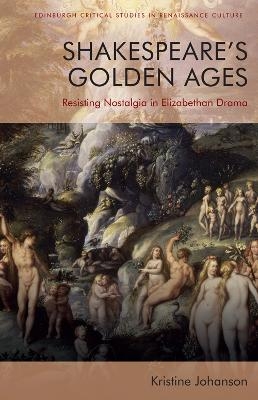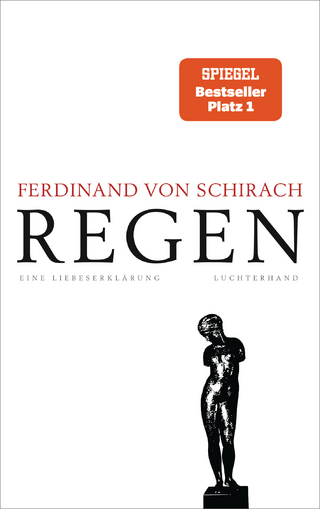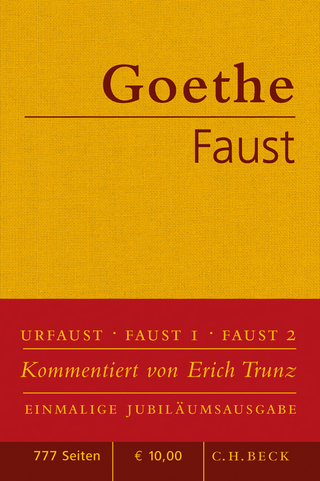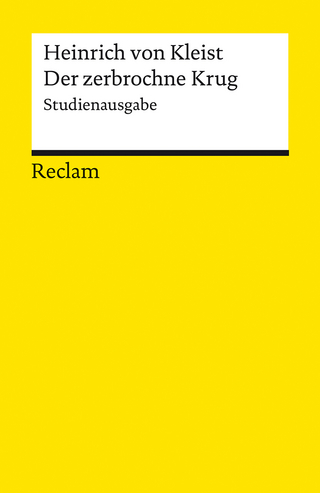
Shakespeare'S Golden Ages
Resisting Nostalgia in Elizabethan Drama
Seiten
2024
Edinburgh University Press (Verlag)
978-1-4744-9355-0 (ISBN)
Edinburgh University Press (Verlag)
978-1-4744-9355-0 (ISBN)
Examines dramatic acts of nostalgia as rhetorical moves designed to precipitate future action.
Diverging from critical paths that have focused on nostalgia as a memorializing practice or on Stuart nostalgia for Elizabeth, this book argues that Shakespeare's Elizabethan history plays stage nostalgia as a future-focused political rhetoric. In doing so, the book suggests new directions for studying nostalgia. Case studies including Richard II and Julius Caesar demonstrate how Shakespeare creates a dramatic argument for nostalgia's power and possibility, even as he represents the fruitlessness of trying to reclaim the past and the fiction of that past's ideal nature. In his dramaturgy, nostalgia functions as a persuasive call for (short-lived) political change. The book provides new interpretations of Shakespeare's contemporaries to illustrate how his use of nostalgia depends on, innovates from and influences his fellow playwrights. By reading literary, religious and political texts alongside Shakespeare's histories, this book attends additionally to the extra-dramatic valences nostalgic rhetoric obtains in Elizabethan England.
Diverging from critical paths that have focused on nostalgia as a memorializing practice or on Stuart nostalgia for Elizabeth, this book argues that Shakespeare's Elizabethan history plays stage nostalgia as a future-focused political rhetoric. In doing so, the book suggests new directions for studying nostalgia. Case studies including Richard II and Julius Caesar demonstrate how Shakespeare creates a dramatic argument for nostalgia's power and possibility, even as he represents the fruitlessness of trying to reclaim the past and the fiction of that past's ideal nature. In his dramaturgy, nostalgia functions as a persuasive call for (short-lived) political change. The book provides new interpretations of Shakespeare's contemporaries to illustrate how his use of nostalgia depends on, innovates from and influences his fellow playwrights. By reading literary, religious and political texts alongside Shakespeare's histories, this book attends additionally to the extra-dramatic valences nostalgic rhetoric obtains in Elizabethan England.
| Erscheinungsdatum | 14.02.2024 |
|---|---|
| Reihe/Serie | Edinburgh Critical Studies in Renaissance Culture |
| Verlagsort | Edinburgh |
| Sprache | englisch |
| Maße | 156 x 234 mm |
| Themenwelt | Literatur ► Lyrik / Dramatik ► Dramatik / Theater |
| Geisteswissenschaften ► Geschichte | |
| Geisteswissenschaften ► Sprach- / Literaturwissenschaft ► Anglistik / Amerikanistik | |
| Geisteswissenschaften ► Sprach- / Literaturwissenschaft ► Literaturgeschichte | |
| Geisteswissenschaften ► Sprach- / Literaturwissenschaft ► Literaturwissenschaft | |
| ISBN-10 | 1-4744-9355-6 / 1474493556 |
| ISBN-13 | 978-1-4744-9355-0 / 9781474493550 |
| Zustand | Neuware |
| Haben Sie eine Frage zum Produkt? |
Mehr entdecken
aus dem Bereich
aus dem Bereich
Der Tragödie erster und zweiter Teil. Urfaust
Buch | Hardcover (2021)
C.H.Beck (Verlag)
10,00 €
Kleist, Heinrich von – Deutsch-Lektüre, Deutsche Klassiker der …
Buch | Softcover (2024)
Reclam, Philipp (Verlag)
7,40 €


